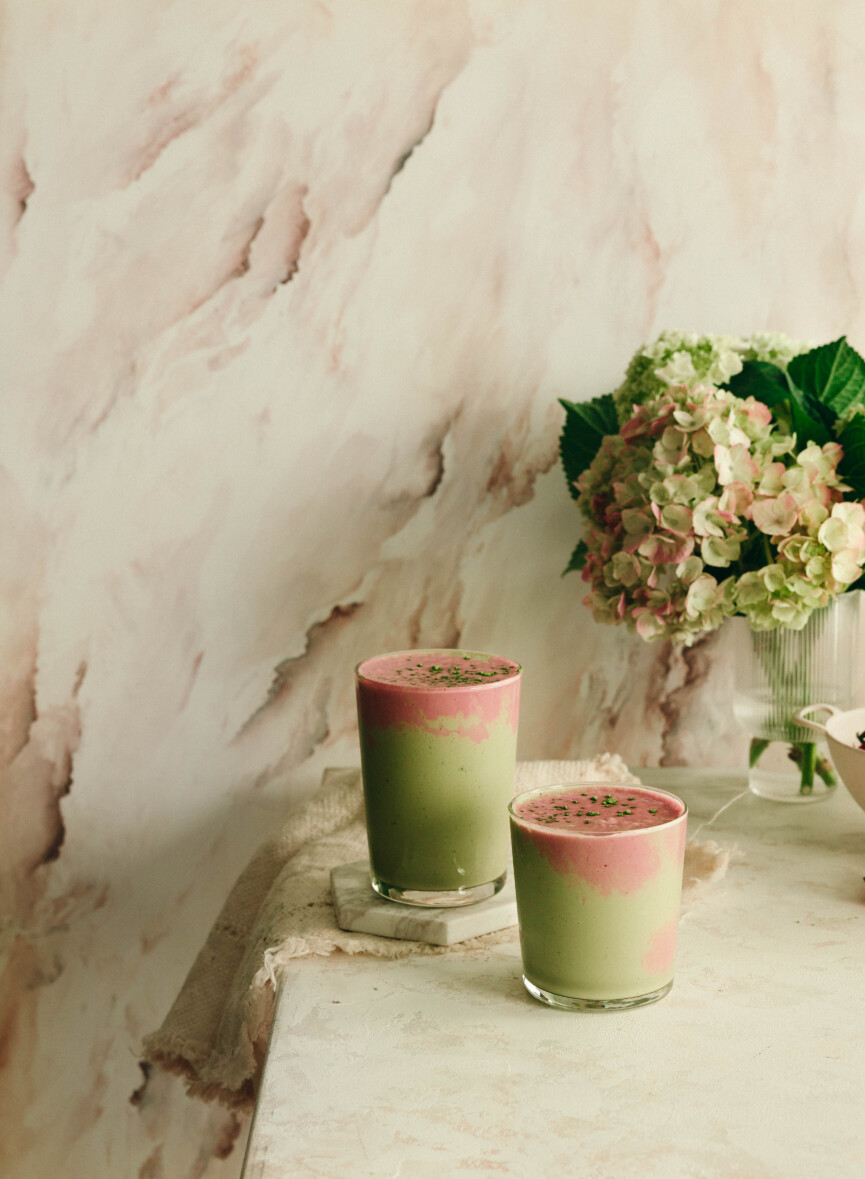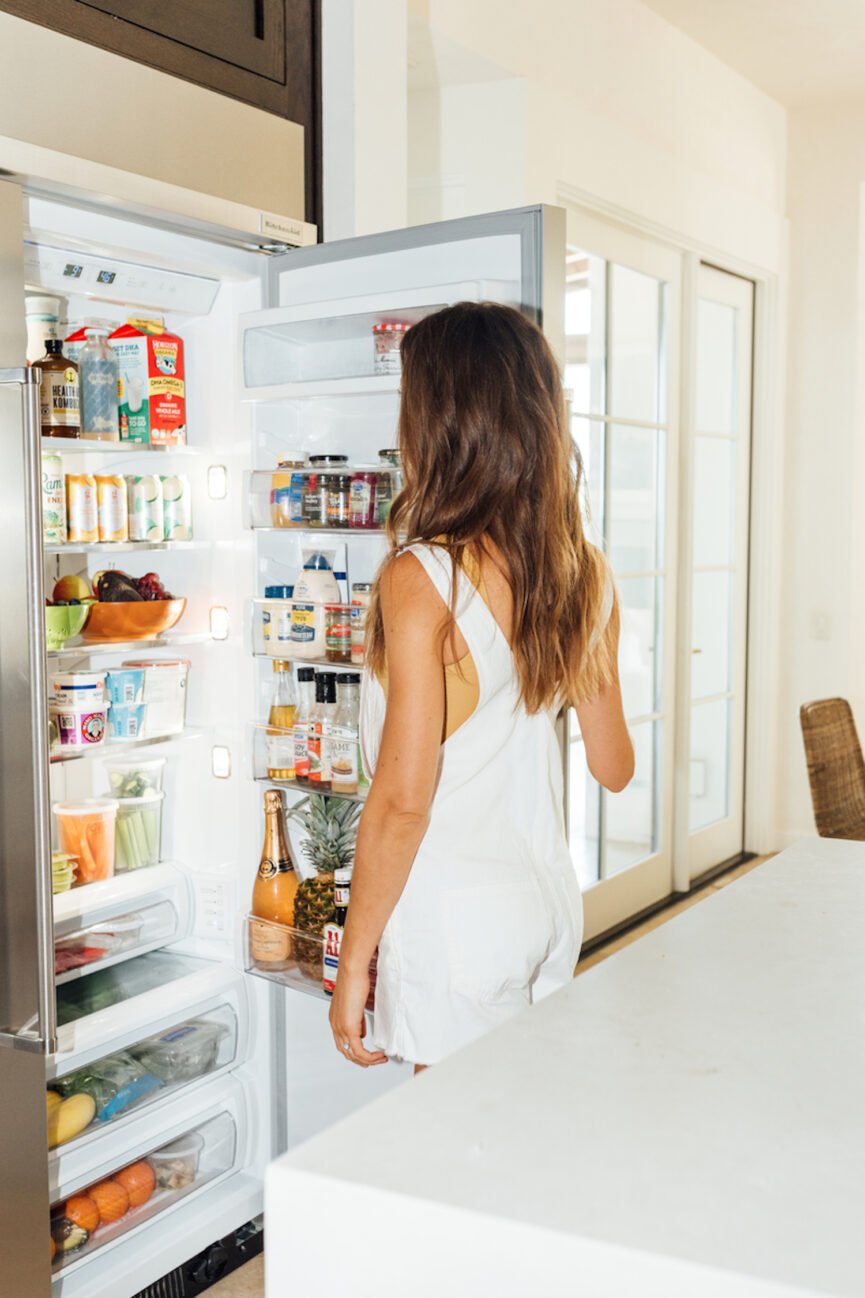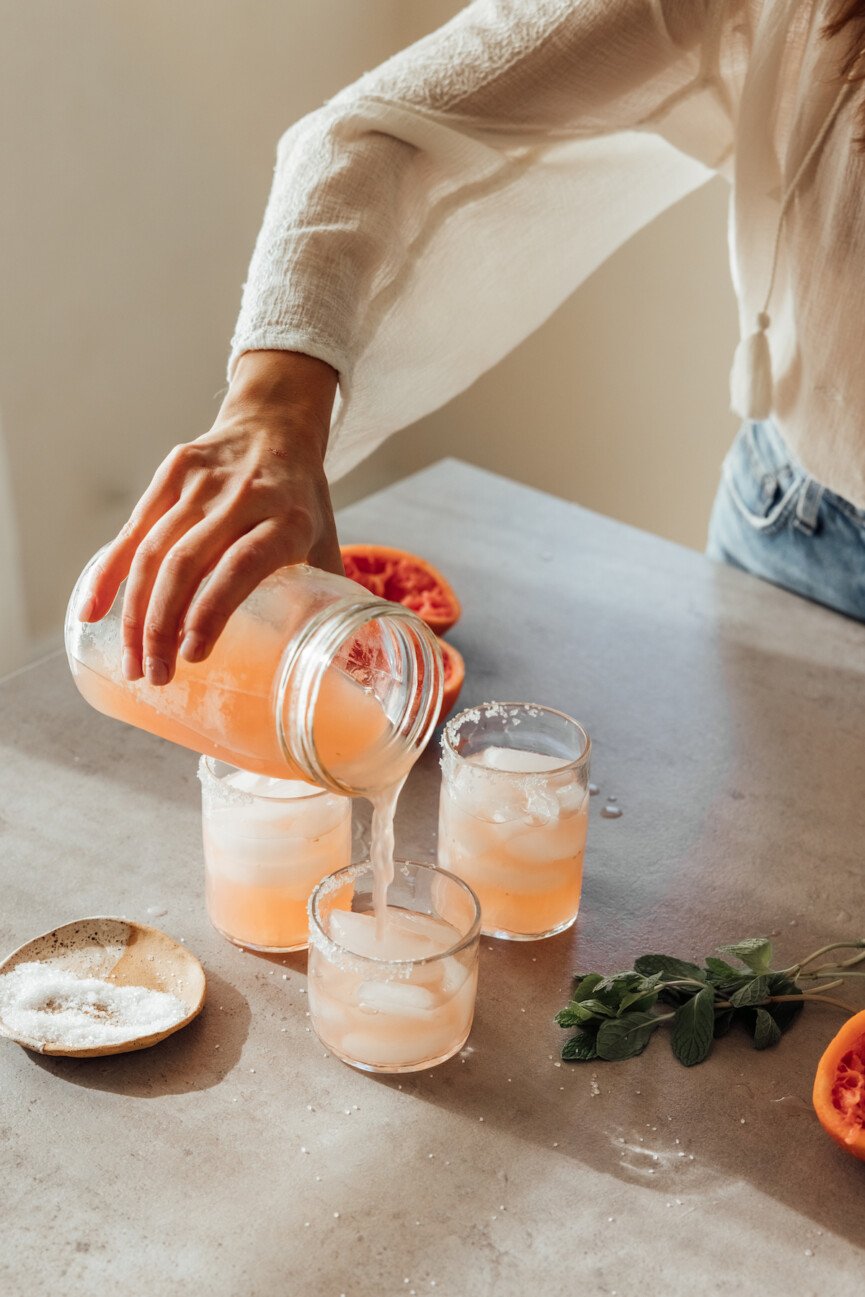We may receive a portion of sales if you purchase a product through a link in this article.
Reliant on your pre-workout energy drink? Obsessed with your afternoon cup of coffee? You’re not alone. Most of us grab a pick-me-up at some point in the day! But let’s face it: traditional energy drinks are loaded with sugar and artificial ingredients. Plus, they typically contain enough caffeine to spill over into the next day’s quota. Fortunately, we come bearing alternatives. We’re sharing healthier energy drinks with clean(er) ingredients. Get the scoop on why we’re obsessed with functional energy drinks—and discover the best ones to keep stocked.

A Collective Shift
The wellness industry is shifting. And we’re all along for (a transformative) ride. We’re moving toward more mindful choices and better-for-you products. As a Nutrition Consultant, this is music to my ears. This collective shift reflects our desire for improved well-being and a more conscious approach to what we consume. By embracing this change, we’re not just adapting to new trends—we’re actively shaping the future of wellness together.

Sustained Energy, Without the Crash
As we become more mindful of what we’re putting into our bodies, energy drinks are no exception. We’re seeking sustained energy without the crash (or jittery feeling). That’s why healthy energy drinks are trending. They get the job done while focusing on natural caffeine, adaptogens, electrolytes, and blood sugar-friendly sweeteners. Whether you’re looking to power through the afternoon slump or boost your workout, there’s a healthier option within reach.
Are energy drinks good for you?
It’s a mixed bag. Yes, energy drinks provide a quick boost, but the key is to choose cans with clean ingredients (and natural sources of caffeine). Ideally reach for energy drinks with benefits, like added vitamins and adaptogens. On the flip side, avoid those with refined sugar and artificial additives. In moderation—and with optimal ingredients—they’re a handy sidekick for busy days.

What to Look For in Healthy Energy Drinks
Compared to their sugary counterparts (best to skip these!), healthier alternatives have a shorter ingredient list and no artificial additives. So, how can you identify healthier options?
Added functional benefits: Look for extras like B vitamins (for energy metabolism), electrolytes (for hydration), and adaptogens/nootropics to reduce stress and improve focus.
Natural Sweeteners: Skip the high fructose corn syrup or artificial sweeteners. Well-balanced energy drinks use options like stevia, monk fruit, or a touch of honey.
No artificial ingredients: Say goodbye to preservatives and dyes.
Clean caffeine sources: Rather than relying on synthetic caffeine, healthier versions opt for natural sources—like green tea extract, guayusa, and yerba mate—which offer smoother energy without the crash.
Disclaimer: Even the healthiest energy drinks aren’t a substitute for proper hydration, balanced nutrition, and a good night’s sleep!

Ranges of Caffeine Content
Inevitably, energy drinks come in a variety of caffeine levels. If you’re seeking a mild boost, sip on one with 50-100 milligrams of caffeine. You’ll get a gentle lift without overwhelming stimulation. Looking for something more robust? Standard energy drinks typically offer 100-200 milligrams of caffeine—like Bloom. With these, you’ll get a moderate surge of energy. Higher-caffeine energy drinks push the limits from 300-500 milligrams. Chug with caution!
How to Choose Your Perfect Can of Caffeine
Before you lift the tab, consider your personal needs and lifestyle. Here are a few tips:
- Caffeine sensitivity. Are you sensitive to caffeine? Opt for energy drinks with no more than 100 milligrams of caffeine. Additionally, look for ingredients like L-theanine that balance the caffeine buzz.
- Dietary needs. Do you follow a specific diet (vegan, keto, etc.)? Check the label to ensure the drink fits your lifestyle.
- Additional Benefits. Are you looking for more than just energy? Look for drinks with added vitamins, minerals, or adaptogens to support your overall wellness.

Energy Drink FAQs
Are healthy energy drinks safe? In moderation, yes (caveat if you’re pregnant or nursing). An acceptable amount of caffeine for most people is up to 400 milligrams per day, which is roughly equivalent to four 8-ounce cups of brewed coffee.
Can you drink healthy energy drinks daily? To avoid overstimulation, it’s best to limit consumption to one per day.
Do healthy energy drinks really work? Yes, they provide energy, focus, and hydration without the sugar crash of traditional energy drinks.
How do healthy energy drinks compare to coffee? You’re potentially getting additional benefits—like adaptogens and vitamins—while coffee is a more straightforward source of caffeine.
Are there side effects to drinking healthy energy drinks? Overconsumption can lead to dehydration, sleep disruption, or overstimulation from caffeine. Stick to the recommended serving size.

8 Energy Drinks We’re Loving Right Now
If you catch us sipping an energy drink, chances are it’s one of these.
Bloom Nutrition
Made with zero sugar, natural caffeine, and good-for-you ingredients (like prebiotics and lychee), each 10-calorie can increase energy, boost metabolism, and promote mental focus. We love all the flavors! Caffeine count: 180 mg.
Gorgie
With the right amount of flavor and fizz, we can’t get enough of Gorgie. Each can is packed with L-theanine, biotin, B vitamins, and no sugar. Caffeine count: 150 mg.
MatchaBar Hustle
Featuring matcha as its caffeine source, this drink provides a clean energy boost with the added benefit of L-theanine. Caffeine count: 120 mg.
Drink OCA
A plant-based energy drink powered by tapioca (an extract from the cassava root), you’ll get the surge you need without the crash. Caffeine count: 120 mg.
Zevia Energy
Sweetened with stevia, Zevia offers zero-calorie energy with caffeine derived from coffee beans. All eight flavors are delicious! Caffeine count: 120 mg.
Guayakí
New to yerba mate? This is a traditional South American drink with natural caffeine and antioxidants. Each can delivers a steady energy supply without the jitters. Caffeine count: 120 mg.
Clean Cause
Speaking of yerba mate, this extract gives Clean Cause 160 mg of caffeine per can. From sparkling options to non-carbonated cans, there’s a flavor (and texture) for every craving. Caffeine count: 160 mg.
Marquis
A sugar-free, sparkling mix of vitamins and antioxidants? We’re hooked. Combined with the perfect amount of organic caffeine, this drink is what your pre-workout ritual has been missing. Caffeine count: 100 mg.

DIY Healthy Energy Drink Alternatives
Prefer to make your own energy drink? We’ve got you covered. This homemade drink provides natural energy from green tea and honey, while the lemon and sea salt help with hydration.
Green Tea Energy Drink
- 1 cup brewed green tea (chilled)
- 1 tablespoon honey or liquid monk fruit
- 1 lemon, juiced
- A pinch of high-quality sea salt (for electrolytes)
- Ice cubes
Combine all ingredients and enjoy! You can also make this ahead of time and keep it in the fridge.
Are clean energy drinks worth the hype?
If you’re looking for a quick, convenient, and cleaner energy boost, the answer is a resounding yes. These upgraded beverages provide a balance of natural ingredients, less sugar, and functional benefits that support sustained energy without the downsides of traditional energy drinks. Happy sipping!

